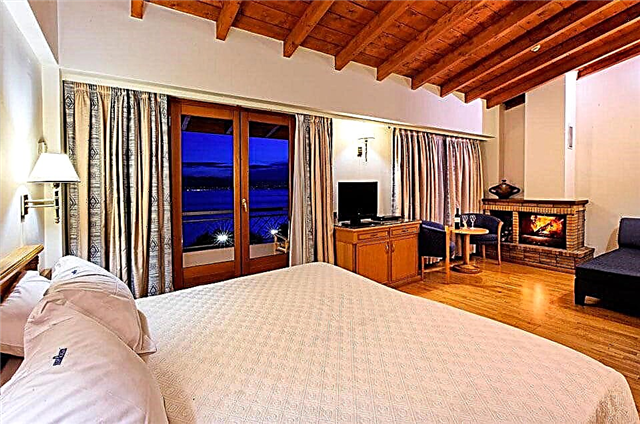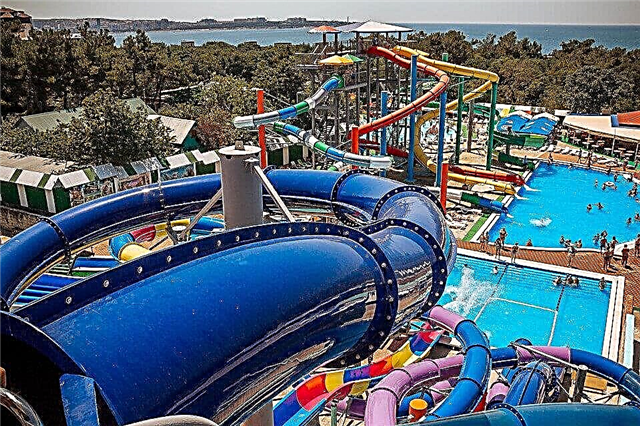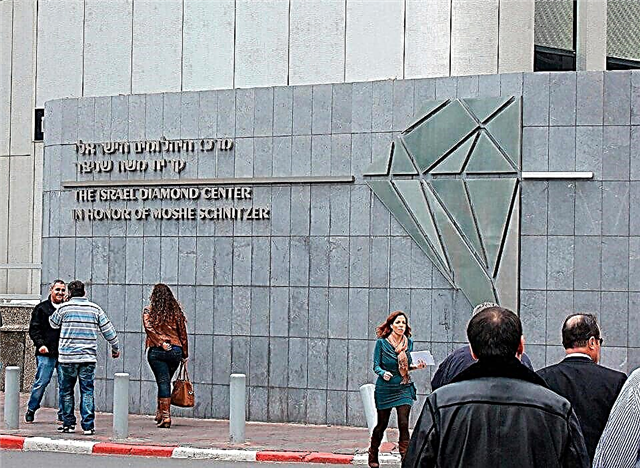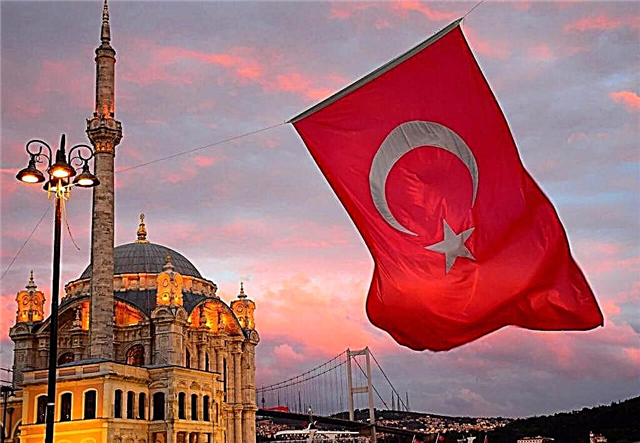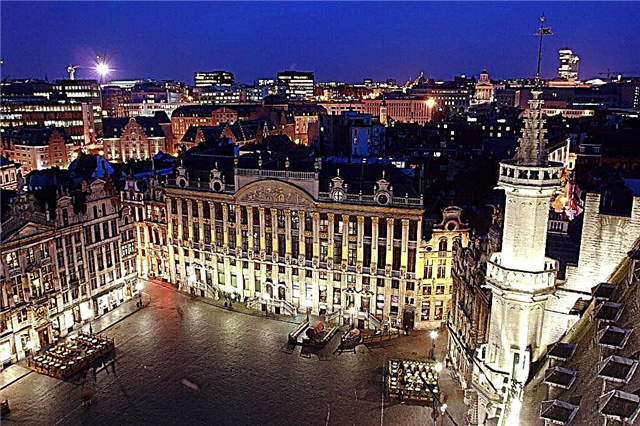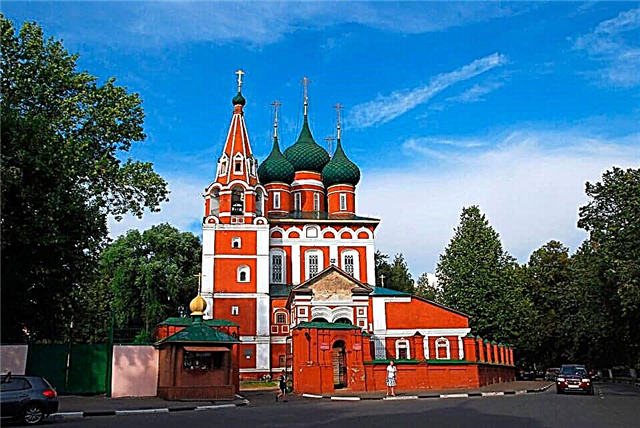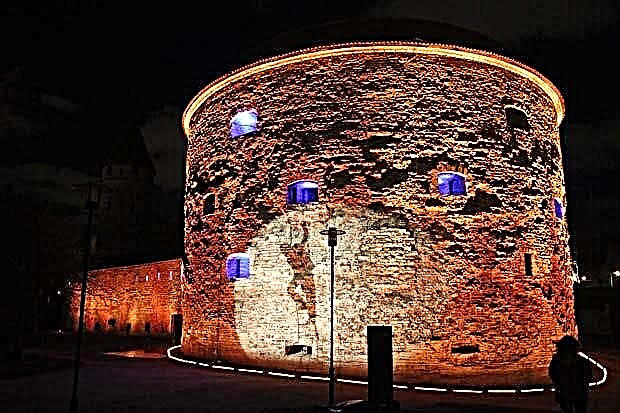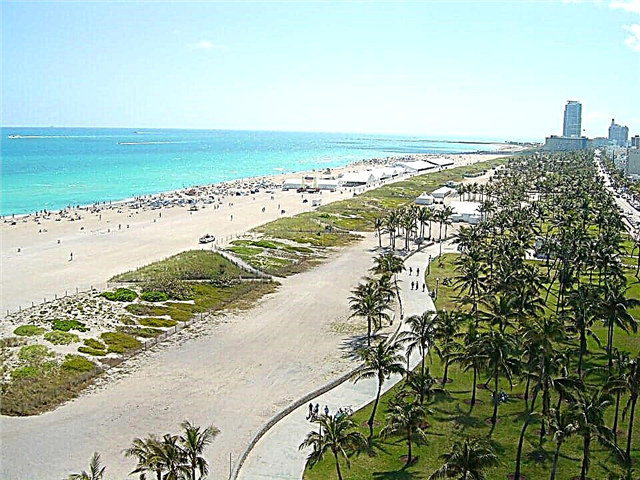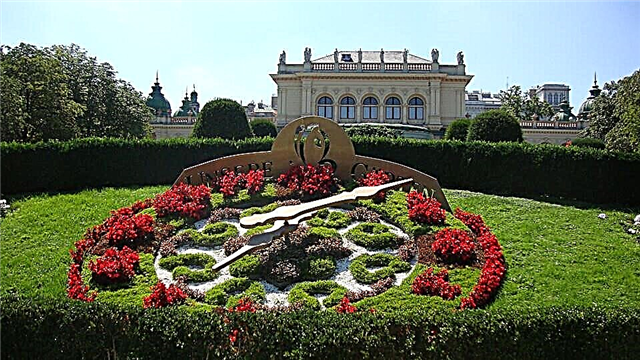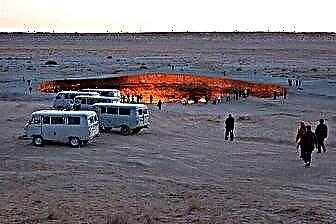Turkmenistan is a country with great tourism potential. The former republic of the USSR followed a completely authentic path, unlike its less fortunate neighbors. In Turkmenistan, ancient traditions are respected, they walk on cheerful national holidays in honor of the birth of a child or harvest, and at the same time they build modern cities and develop industry.
For a tourist who decides to visit Turkmenistan, the country will sparkle with bright colors, show its natural beauty and tell many fascinating stories. It will be interesting for guests to relax in the Avaza tourist zone on the shores of the Caspian Sea, look at the endless Karakum desert, take a walk at the spring holidays of snowdrops (Chuchmoma-Sayili) and tulips (Lola-Sayili) or stroll through the city of flowering gardens in Ashgabat.
On the territory of modern Turkmenistan, ancient civilizations rose to their power and collapsed. There you can see the residence of the kings of Parthia, the city of Nisa and the ruins of ancient Merv, follow in the footsteps of the powerful Achaemenid dynasty and the armies of Alexander the Great. Many tourist routes are laid through famous historical sites.
What to see in Turkmenistan?
The most interesting and beautiful places, photos and a short description.
The Karakum Desert
Covers most of the country and covers an area of more than 3500 thousand km². This is a real kingdom of sand, dunes and camels. The climatic conditions in the desert are very harsh, in summer in the sun the temperature reaches 63 ° C, and in winter there are real frosts down to -30 ° C. Almost 15% of the population of Turkmenistan lives in the Karakum Desert.

Darvaza gas crater
A blazing fire crater formed as a result of unsuccessful drilling, which has not extinguished for 40 years. Some tourists compare it to the gateway to the Underworld. When gas burst onto the surface in 1971, they decided to set it on fire for the safety of residents of a nearby village. But the gas reserves have not yet been burned out.

The ancient city of Nisa
Remains of the capital of the once mighty Parthian kingdom, built around the 2nd century. BC. The city was built at the behest of King Mithridates. Here were the burial places of members of the ruling dynasty of Arsakids, palaces, temples, numerous warehouses and the royal treasury. Nisa is included in the UNESCO heritage list.

Ancient city of Merv
This city is the oldest in all of Central Asia, it was built during the Margian civilization (3-2 thousand years BC). Later it became one of the centers of the powerful Parthia. After the Arab conquest of the 7th century, Merv became a stronghold for further expansion to the east and north. The city blossomed during the Arab dynasty of the Samanids in the XII century, in its beauty it surpassed even Constantinople.

Dehistan
This place is also called the "Martian Plain". Once the area was a blooming oasis surrounded by rivers and gardens, but hundreds of years passed and the waters dried up, and Dehistan turned into a desert. People had to leave for other more fertile lands, abandon their settlements. Through the centuries, the ruins of Akga-kala and Shadur-kala, surrounded by a lifeless plain, have reached us.

Kunya-Urgench
Historical reserve of Turkmenistan, formerly the capital of North Khorezm. The city has been mentioned since the 1st century. In the 10th century, during the reign of the Samanids, Kunya-Ugrech was renamed Gurganj. The city became a cultural and scientific center, the second after the capital of the empire of Bukhara. The famous Ibn Sina (Avicenna in European style) lived here.

Rukhyet palace
A modern architectural monument, built in 1999 in Ashgabat by order of the first Turkmen President S. Niyazov. It is a complex of white marble topped with turquoise domes. The palace is used for conferences, forums, important state events, as well as concerts and mass celebrations.

Independence Monument of Turkmenistan
The symbol of the country's independence in the form of a 118-meter column. The building is located in the Ashgabat park, reminding residents and guests of the formation of a separate and independent state of Turkmenistan. The top of the monument is crowned with a crescent moon with five stars, symbolizing the unity of the five Turkmen tribes.

Ertogrulgazy Mosque
Built in the 90s, one of the most beautiful mosques in Ashgabat. During the construction, elements of the Turkish style were used, the name also has Turkish roots - it was given in honor of the father of the ruler Osman I. The temple accommodates almost 5 thousand believers and is the largest in the capital. In the courtyard and in the decoration, elements of the old Byzantine style are visible.

Mosque of Turkmenbashi Rukhy
The main Muslim temple of Turkmenistan, a large and pompous building. It was erected on the initiative of Turkmenbashi (S. Niyazov) and named after him. The mosque is located not in the capital, but in the village of Kipchak, where the president was born. The construction was carried out by a French company, the work cost the country more than $ 100 million.

Baharden cave
Natural landmark in the southwest of the country. The cave has a large underground lake 16 m deep and 70 m long. The Turkmen tribes considered this place sacred, for centuries they came here in whole caravans and families in order to bring a sacrifice (livestock) and ask for the grace of spirits.

Dinosaur Plateau
A mysterious and unique place where dinosaur paw prints have been preserved. According to local legend, these tracks belonged to the huge elephants of the army of Alexander the Great (in the local dialect of Iskander Zulkarnein). More than 3000 footprints of ancient reptiles and more than 30 paths along which they walked about their business were recorded on the plateau.

Repetek reserve
The sands of the endless Karakum desert begin here. It is one of the hottest places in the country with temperatures reaching + 50 ° C. Desert fauna and flora are represented in the reserve. Turtles, lizards, monitor lizards live here, desert acacia and peacock poppies grow. Many species are endemic to the area.

Yangi-Kala canyon
Translated from Turkmen it means “fiery fortresses”. This is a picturesque and unusual place - rocks of purple, yellow, beige, red colors really seem to be castles from some kind of fairytale fantasy. During sunset, the stones are painted in brighter colors, and an unforgettable sight appears to the tourist. In the canyon, you can arrange a jeep safari or a hike with an overnight stay in tents.

Caspian Sea
Turkmenistan owns a fairly large piece of the Caspian coastline - about 1200 km. This unique reservoir is located at the very junction of Asia and Europe. Quite recently, by the will of the Turkmen authorities, a national resort zone "Avaza" was created on the coast with boarding houses, hotels, sanatoriums and a developed infrastructure for tourists.


